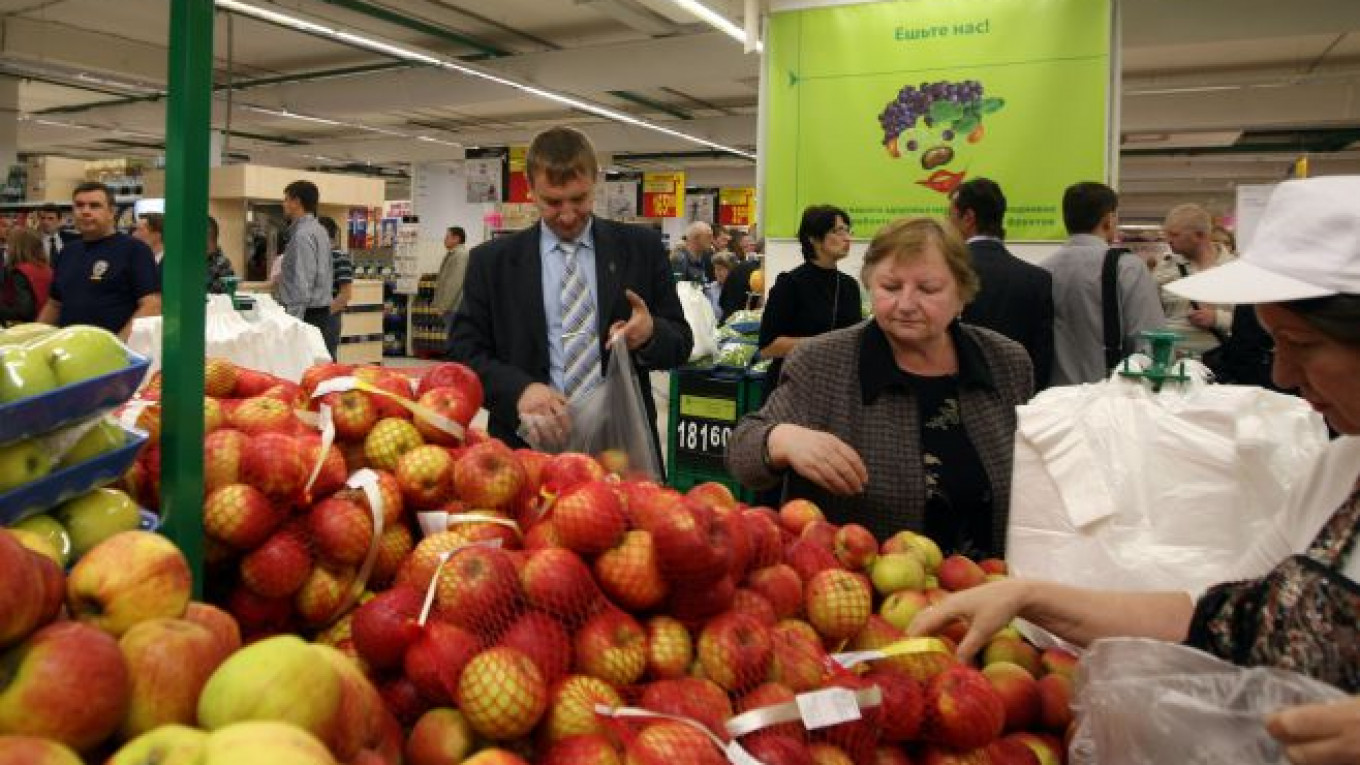BRUSSELS — The European Commission will announce more help for EU fruit and vegetable producers early next week to try to stave off a price collapse after Russia's ban on most Western food imports.
Russia has declared a one-year embargo on meat, fish, dairy, fruit and vegetables from the United States, the European Union, Canada, Australia and Norway in retaliation for Western economic sanctions over Moscow's actions in Ukraine.
Analysts say Russia could be inflicting the sharpest pain on itself, because it will drive up food prices for its consumers and stoke inflation, but EU farmers are concerned that the gluts of fresh fruit and other produce they face will sap the value of their products on the European market.
The European Commission, the EU executive, has already announced support for peach and nectarine growers, increasing the amount of surplus production that can be withdrawn from the market and distributed free while compensating producers financially.
It says it plans similar steps to help growers of produce such as tomatoes, cucumbers, peppers and mushrooms.
"As of early next week, I will come forward with the next market stabilization measure, targeting a number of perishable fruit and vegetable products which are now clearly in difficulty," Agriculture Commissioner Dacian Ciolos said in a statement after an emergency meeting of EU farm experts.
"I am prepared to propose EU-wide measures as and when needed," Ciolos said.
Following reform of the EU's Common Agricultural Policy completed in 2013, the bloc has an emergency fund of 420 million euros ($562 million) to compensate producers for sudden market distortions.
In all, EU farm exports to Russia are worth about 11 billion euros ($14.7 billion) a year, roughly 10 percent of all EU agricultural sales.
Pain Unequally Spread
Some nations are more affected than others. Poland is suffering from the loss of its biggest apple buyer and France, the bloc's leading agricultural economy, fears that the hundreds of thousands of Polish apples Russia does not import will drive down the value of French produce.
French Agriculture Minister Stephane Le Foll said that France was among the countries that had called for the speedy imposition of measures to reduce supply.
Other measures under consideration are efforts to improve marketing strategies domestically and in new markets.
Speaking on condition of anonymity, EU officials said they were also looking at trying to dissuade alternative suppliers — such as Brazil and Egypt — from selling to Russia the food Moscow will no longer receive from Europe or other Western nations.
One option could be to take a case to the World Trade Organization, though lawyers in Brussels have said that could be a mistake when the EU's main concern is to de-escalate the Ukraine crisis.
The issue could be raised as part of a wider debate on the Ukraine crisis at an emergency meeting of EU foreign ministers in Brussels on Friday.
EU agriculture ministers are also expected to review the situation further at an extraordinary meeting in early September as a follow up to Thursday's meeting of agriculture experts representing the 28 member states.
See also:
A Message from The Moscow Times:
Dear readers,
We are facing unprecedented challenges. Russia's Prosecutor General's Office has designated The Moscow Times as an "undesirable" organization, criminalizing our work and putting our staff at risk of prosecution. This follows our earlier unjust labeling as a "foreign agent."
These actions are direct attempts to silence independent journalism in Russia. The authorities claim our work "discredits the decisions of the Russian leadership." We see things differently: we strive to provide accurate, unbiased reporting on Russia.
We, the journalists of The Moscow Times, refuse to be silenced. But to continue our work, we need your help.
Your support, no matter how small, makes a world of difference. If you can, please support us monthly starting from just $2. It's quick to set up, and every contribution makes a significant impact.
By supporting The Moscow Times, you're defending open, independent journalism in the face of repression. Thank you for standing with us.
Remind me later.






